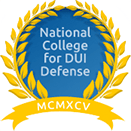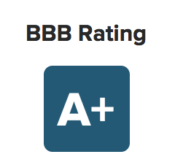Were You Charged With A Federal Marijuana Offense?
Don’t let a federal marijuana charge in New Jersey leave you feeling powerless. At The Law Offices of Jonathan F. Marshall, we stand ready to fight for your rights. With our over 200 years of combined experience, team of 11 dedicated criminal defense attorneys, and highly-recognized legal knowledge in federal and state law, we will strive for the most favorable outcome. Contact us now at (877) 534-7338 or online to secure the fierce advocacy you deserve.
If you’re facing a federal marijuana offense, it’s crucial to understand the potential penalties involved. In this article, we’ll focus on Section 841 of Title 21 of the US Code, which outlines prohibited acts related to controlled substances, including marijuana. Familiarizing yourself with the potential consequences will help you make informed decisions and seek appropriate legal representation.
Unlawful Acts: Manufacturing, Distributing, Or Possessing Marijuana
Under Section 841(a), it is illegal for any person to knowingly or intentionally engage in the following acts, unless authorized by the relevant laws:
- Manufacturing marijuana, distributing marijuana, or dispensing marijuana.
- Possessing marijuana with the intent to manufacture, distribute, or dispense it.
- Creating, distributing, or dispensing counterfeit marijuana.
- Possessing counterfeit marijuana with the intent to distribute or dispense it.
Federal Penalties For Marijuana Violations
Section 841(b) establishes the penalties for violating subsection (a) of the law, with different penalties based on the quantity of marijuana involved.
For offenses involving 1,000 kilograms or more of marijuana, or 1,000 or more marijuana plants, the minimum sentence is 10 years, with a maximum sentence of life imprisonment. If death or serious bodily injury results from the use of such marijuana, the minimum sentence increases to 20 years or life. Fines can reach up to $10,000,000 for individuals or $50,000,000 for non-individuals, or both.
For offenses involving 100 kilograms or more of marijuana, or 100 or more marijuana plants, but less than the quantities mentioned above, the minimum sentence is 5 years, with a maximum sentence of 40 years. If death or serious bodily injury results from the use of such marijuana, the minimum sentence increases to 20 years or life. Fines can reach up to $5,000,000 for individuals or $25,000,000 for non-individuals, or both.
For offenses involving less than 50 kilograms of marijuana, or 50 or more marijuana plants, the maximum sentence is 5 years. If a prior felony drug offense conviction exists, the maximum sentence increases to 10 years. Fines can reach up to $250,000 for individuals or $1,000,000 for non-individuals, or both.
It’s important to note that these penalties apply to federal marijuana offenses. State laws regarding marijuana may differ, and some states including New Jersey have decriminalized or legalized its use. However, federal law still considers marijuana a controlled substance, and federal charges can be filed even in states who legalize marijuana under state law.
What Other Ways Do Federal Marijuana Laws Affect Me?
Common Conflicts With Federal Marijuana Laws
Federal marijuana laws can create conflicts in various aspects of life, including employment, housing, taxes, the right to bear arms, and banking.
Employment
Even if marijuana is legal in your state, your off-the-clock use of marijuana could result in termination from your job. Employers can still enforce policies prohibiting marijuana use among employees, despite state laws. Federal legislation has made marijuana illegal, so businesses have the right to ban its use without facing penalties. Certain professions, such as doctors and lawyers, also face risks due to their involvement with marijuana.
Housing
Renters who use marijuana in compliance with state laws can still face eviction if their lease prohibits illicit drugs. Landlords can enforce this prohibition since federal law categorizes marijuana as a controlled substance. Additionally, if you receive federal housing aid, such as Section 8, using marijuana can lead to the loss of benefits or eviction.
Taxes
Those working in the marijuana industry should be aware of Internal Revenue Code Section 280E, which prevents businesses from deducting ordinary expenses. However, they can deduct cost of goods sold, so strategic accounting practices are often employed to incorporate various expenses into the cost of goods.
Right To Bear Arms
Having a medical marijuana card may restrict your ability to purchase a gun, according to a federal court. Specifically, the 9th U.S. Circuit Court of Appeals ruled that this restriction does not violate the Second Amendment since federal law prohibits gun purchases by “unlawful users and/or addicts of any controlled substance.”
Banking
Many banks and credit card companies are hesitant to provide accounts to individuals in the marijuana industry due to concerns of prosecution under the CSA. The U.S. Department of Treasury issued guidelines in 2014 to help financial institutions service the industry while complying with federal money laundering laws.
In 2021, the federal government tried, but failed, to pass a law that would combat these issues.
Defenses To Federal Marijuana Charges
Facing a federal marijuana charge can be daunting, but there are potential defenses you can explore. It’s important to consult with an experienced criminal defense attorney who can assess the specific details of your case. Here are some common defenses used in federal marijuana cases in federal courts based on the statute:
Lack Of Knowledge Or Intent
To be convicted under Section 841, federal prosecutors have to prove that a defendant knowingly and intentionally committed the prohibited acts. If the defendant can demonstrate that they were unaware of the presence of marijuana or lacked the intent to manufacture, distribute, or possess it, it can serve as a defense.
Lack Of Sufficient Quantity
The penalties under Section 841 vary based on the quantity of marijuana involved. If the prosecution fails to establish that the quantity meets the threshold necessary for a particular penalty range, you may be able to challenge the charges or seek a lesser sentence.
Invalid Search And Seizure
The Fourth Amendment protects individuals from unreasonable searches and seizures. If the evidence against you was obtained through an unlawful search or seizure, your attorney can file a motion to suppress the evidence, potentially leading to a dismissal of the charges.
Medical Or State Legalization Defense
Although marijuana remains illegal under federal law, some states including NJ actually legalized its medical or recreational marijuana use. Depending on the circumstances and the state you’re in, a medical necessity defense or compliance with state marijuana laws might be applicable.
Entrapment
If you can demonstrate that you were induced or coerced by law enforcement to commit a marijuana-related offense that you wouldn’t have otherwise committed, an entrapment defense may be viable.
Insufficient Evidence
The prosecution bears the burden of proving your guilt beyond a reasonable doubt. If your defense attorney can challenge the credibility or sufficiency of the evidence presented against you, it can weaken the prosecution’s case.
Constitutional Violations
In some cases, constitutional violations such as due process violations, improper handling of evidence, or violation of your Miranda rights may form the basis of a defense.
These are just a few potential defenses, and the viability of each defense depends on the specific circumstances of your case. Working with a skilled criminal defense attorney is crucial for developing an effective defense strategy tailored to your situation.
President Biden Pardons Individuals With Simple Marijuana Possession Convictions
In October 2022, President Joseph R. Biden Jr. issued a proclamation, granting a full and unconditional pardon to individuals who have committed or been convicted of the offense of simple possession of marijuana. Notably, this proclamation applies to current US citizens as well as law-abiding permanent residents. It covers violations of the Controlled Substances Act. The pardon restores all political, civil, and other rights to those who are eligible.
Limited Scope Of The Pardon
The intention behind this proclamation is to pardon only the simple possession of marijuana offense. It does not pardon other controlled substances offenses or other offenses relating to marijuana. Individuals who have been charged or convicted of possession of other controlled substances are not covered by this pardon. Additionally, non-citizens who were not lawfully present in the United States at the time of their offense are not eligible for this pardon.
Administration Of The Pardon
The Attorney General, working through the Pardon Attorney, is responsible for administering and implementing the issuance of certificates of pardon to eligible applicants. These certificates will be given to individuals who have been charged or convicted of the simple possession of marijuana offense. The Attorney General, through the Pardon Attorney, will develop and announce application procedures for the certificates of pardon and will begin accepting applications as soon as possible. Certificates of pardon are issued to those applicants who are eligible.
FAQ About The Pardon
Who Is Eligible For The Pardon For The Offense Of Simple Possession Of Marijuana?
The pardon applies to both current citizens of the US as well as lawful permanent residents who have committed or been convicted of the offense of simple possession of marijuana. However, non-citizens who were not lawfully present in the United States at the time of their offense are not eligible for this pardon.
What Does The Pardon Restore To Eligible Individuals?
The pardon restores full political, civil, and other rights to those who are eligible. This means that individuals who receive the pardon will have their rights fully reinstated.
Does The Pardon Cover Offenses Related To Marijuana Other Than Simple Possession?
No, the pardon only applies to the offense of simple possession of marijuana. It does not cover other marijuana offenses. No other controlled substances are covered either. Only individuals charged or convicted specifically for simple possession of marijuana are eligible for this pardon.
How Is The Pardon Administered?
The Attorney General, through the Pardon Attorney, administers the pardon. All properly submitted applications will be reviewed, and certificates of pardon will be issued to eligible applicants.
Does The Pardon Affect Other Criminal Charges Or Convictions?
No, the pardon only covers the offense of simple possession of marijuana. It does not pardon any other offenses, including possession of other controlled substances. Therefore, if an individual has other criminal charges or convictions unrelated to simple possession of marijuana, those are not affected by this pardon.
Can Individuals Who Have Already Been Charged Or Convicted Before The Proclamation Still Apply For The Pardon?
Yes, the pardon covers both individuals who have been charged or prosecuted for the offense of simple possession of marijuana before the proclamation and those who have already been convicted. Eligible individuals who have previously been charged or convicted can still apply for the pardon and have their cases reviewed for potential issuance of a certificate of pardon.
It’s important to note that specific details and procedures may be announced by the Attorney General and the Pardon Attorney, so it’s advisable to stay updated with official announcements and guidelines regarding the pardon process.
Frequently Asked Questions About Federal Marijuana Possession Charges
Facing a federal marijuana charge can raise many questions and concerns. Here are some frequently asked questions regarding federal marijuana charges based on the statute:
What Is A Federal Marijuana Charge?
A federal marijuana charge refers to being accused of violating federal laws related to the manufacturing, distribution, possession, or dispensing of marijuana, as outlined in Section 841 of Title 21 of the US Code.
How Is A Federal Marijuana Charge Different From A State Charge?
Federal charges are brought under federal law, while state charges are based on state laws. Even if marijuana is legal in your state, federal law still considers it a controlled substance, and federal charges can be filed, especially if the activity involves crossing state lines or other federal jurisdictional factors.
What Are The Potential Federal Marijuana Penalties?
Penalties for federal marijuana offenses depend on various factors, including the quantity of marijuana involved. Penalties can range from several years of imprisonment to life sentences, along with substantial fines. The specific penalties are outlined in Section 841(b) of the statute.
Can I Use Medical Or State Legalization As A Defense In A Federal Marijuana Case?
While medical or state legalization of marijuana can be a factor in your defense, federal law does not recognize these defenses. It’s crucial to consult with an attorney to understand the specific legal implications and potential defenses available in your case.
Can I Face Federal Charges If I’m In A State Where Marijuana Is Legal?
Yes, even if you are in a state where marijuana is legal, federal law enforcement can still pursue charges. Federal charges often come into play if the activity involves federal property, crossing state lines, or other federal jurisdictional factors.
Can I Face Multiple Charges For The Same Offense Under Federal And State Laws?
It is possible to face both federal and state charges for the same offense. Each jurisdiction operates independently, and their laws can be enforced simultaneously, leading to multiple charges.
What Defenses Can Be Used In A Federal Marijuana Case?
Defenses in federal marijuana cases can include lack of knowledge or intent, insufficient evidence, invalid search and seizure, medical necessity, entrapment, constitutional violations, and more.
Should I Hire A Criminal Defense Attorney For A Federal Marijuana Charge?
Absolutely. Federal charges are complex, and the potential consequences are significant. A knowledgeable criminal defense attorney experienced in federal drug cases can help protect your rights, assess the evidence, develop a defense strategy to the case brought by the federal government, and guide you through the legal process.
Federal Marijuana Charge Lawyer
Facing a federal marijuana charge in New Jersey is a daunting situation, but you don’t have to navigate this difficult path alone. The Law Offices of Jonathan F. Marshall cannabis offense lawyers stand ready to provide you with robust and strategic legal defense. Our team is comprised of 11 devoted criminal defense attorneys, pooling over 200 years of combined experience. We house seven former prosecutors, four of whom held directorial positions within the Drug, Gang, and Gun Task Force, Major Crimes Division, Trial Division, and Juvenile Division.
Our representation is recognized nationally, with multiple attorneys selected to the National Trial Lawyers Top 100 or Top 40 Under 40. Moreover, two of our lawyers were honored with inclusion in the Super Lawyers Rising Stars 2021 list for New Jersey – an elite distinction granted to only 2.5% of attorneys in the state. Our credentials are further solidified by having an attorney Certified by the NJ Supreme Court as a Criminal Trial Attorney, a rare honor bestowed on less than one percent of criminal lawyers in the state. Don’t let federal marijuana charges determine your future. Reach out to us today at (877) 534-7338 or contact us online to begin building your defense.
Learn more about state and federal drug offenses, including state law on marijuana distribution.











